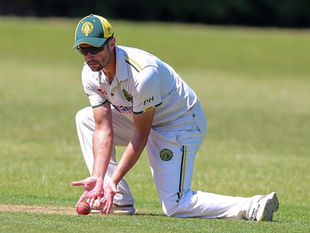
The game of cricket ebbs and flows, with ever-changing scenarios that pose unique challenges to players. Knowing when to apply or absorb pressure as a fielder is key to success.
One of the main challenges for coaches is teaching players how to organise themselves in the field and assess how much pressure to apply in any given situation. Most aspiring players and coaches want to see direct pressure applied to the batters – with fielders closing down angles, diving to cut off the ball and taking risks to restrict scoring.
While this sounds ideal, the reality is that the game requires different approaches for different problems.
Scenario-based Thinking
Let us consider a scenario and think about the approach you would expect in the field based on the brief context:
In a T20 match, the batting side needs ten runs from eighteen balls and has two wickets left. They are into the tail end of the order.
What approach should the fielding side take?
The current situation is in the batters’ favour – with less than a run a ball needed and minimal risk required. However, they know they only have two wickets in hand.
Using a tactical game model, we provide a word that captures the characteristics players must embody to adapt to these scenarios. In the above T20 example, we would want our players to:
Attack every ball
Focus on creating run-out opportunities
Gamble and take risks on every fifty-fifty opportunity, with fields set to maximise pressure
To quickly and clearly communicate this approach, we label it as ‘HUNTER’.
Tactical Flexibility
There will be times, though, when fielders must absorb the pressure applied by the batters. That approach will involve other potential solutions and be labelled accordingly to aid understanding.
Below is a table we use to help our players grasp the possible fielding solutions as the game evolves.

This framework helps educate and inform players of the possible approaches depending on what the game is presenting.






